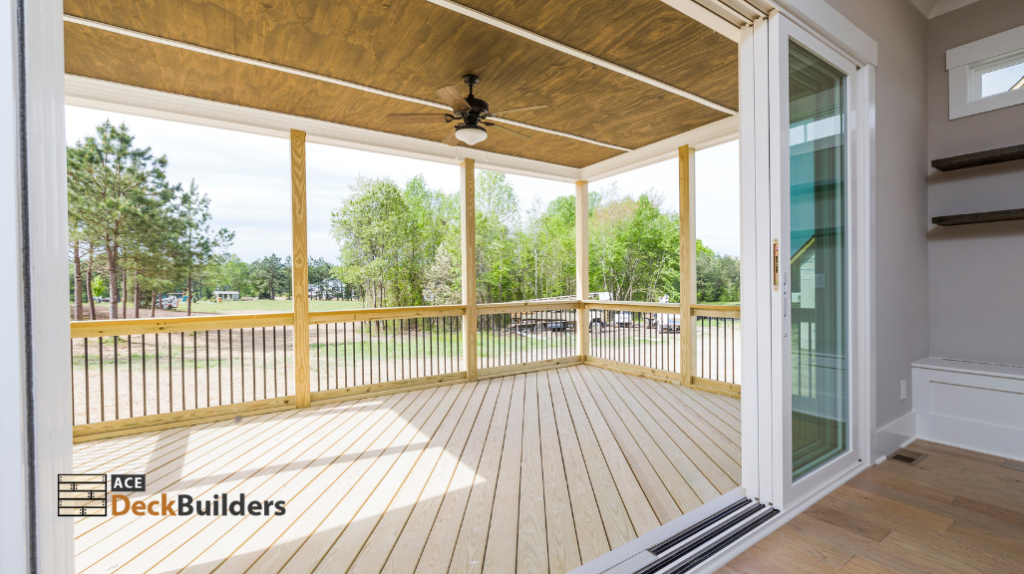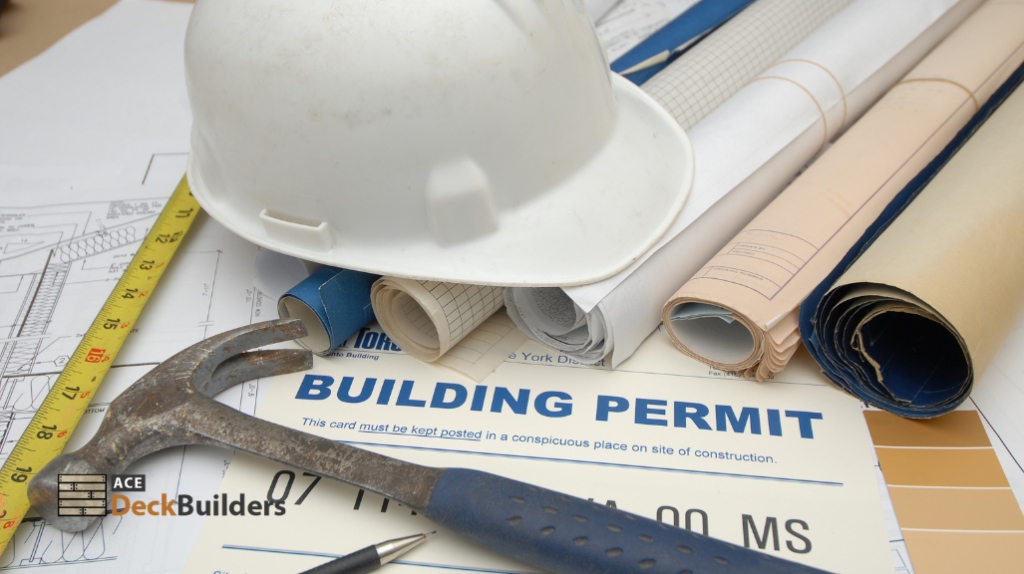TL;DR
Austin doesn’t treat “deck builder licenses” as a one-size-fits-all credential in the construction industry . Instead, what usually matters is permit eligibility, inspections, and whether your contractor carries the proper insurance and uses licensed subs for any electrical or gas work. The safest path is to hire a specialist who can provide recent plans approved in Austin, clean inspection tags, and a written scope with a warranty. For a benchmark of professionalism, consider the standards outlined by Ace Deck Builders on their homepage.
Table of Contents
ToggleWhy This Question Is Confusing (and How to Think About It)
If you’ve searched for “Are deck builders licensed in Austin?” you’ve probably seen mixed answers. That’s because “licensing” can mean different things:
- State licenses for specific trades (e.g., electrical, plumbing, HVAC).
- City permitting and contractor registration (who’s allowed to pull a permit for your job).
- Professional certifications (manufacturer programs, continuing education).
For most residential decks in Austin, the practical question is not “Do they have a deck builder license?” but “Can they lawfully pull the permit, pass inspections, and ensure the appropriate licensed pro does any specialized trade work?” Great contractors answer that without flinching—and back it up with documents.
Licensing vs. Registration vs. Permit Eligibility

Let’s disentangle the terms you’ll hear:
- General “deck builder license”: There isn’t a single, universal license labeled “deck builder.” Instead, Austin focuses on permits and inspections for structures like decks. The city wants compliant plans, correct details (ledger, footings, railings), and verified inspections—not a generic certificate.
- Contractor registration/permit agent: Some jurisdictions require contractors to be registered or to show proof of insurance to pull permits. Ask prospects, “Are you registered with Austin to submit deck permits, and will you be the one pulling mine?”
- Trade licenses (when applicable): If your deck includes electrical (lighting, outlets) or gas (grill, heaters), those scopes must be performed by licensed subcontractors who pull their respective trade permits and meet trade inspections.
What this means for you: A credible deck specialist in Austin is comfortable acting as the permit applicant for the structure, coordinating any licensed trades as needed, and guiding you through inspections. They won’t evade permit questions or push you to “just skip it.”
Insurance & Compliance: What You Should See in Writing
Even when a city doesn’t require a specific “deck license,” the permit application process, insurance, and documentation protect you:
- General liability insurance: Request a certificate of insurance (COI) naming you as the certificate holder.
- Workers’ compensation: Confirms crew injuries won’t become your problem.
- Written scope & plan set: Clear drawings and details (ledger flashing, footing sizes, spans, railing posts).
- Inspection sequence in the schedule: Footings → framing → final.
- Warranty terms: Workmanship in writing (often 1–3 years), plus manufacturer warranty handling.
If a builder resists providing documents, assume they’ll resist when an inspector asks for the same clarity on site.
When a Licensed Subcontractor Is Required (Electrical, Gas, Engineering)
Many decks include lighting, outlets, fans, or gas lines for a kitchen or heaters. Those scopes should be performed by properly licensed subcontractors who pull trade permits and meet their own inspections. Likewise, engineered drawings or a structural stamp may be prudent or required for elevated decks, rooftop decks, spa loads, or unusual conditions.
How a great builder handles this:
- Tells you upfront which trades will be licensed subs and which permits they’ll pull.
- Coordinates inspection orders to ensure nothing is covered prematurely.
- Provides stamped drawings when the design warrants it (not as an upsell, but as risk management).
Proof of Competence: Plans, Details, and Inspection Tags
The strongest sign you’re hiring the right business pro isn’t a generic “license”—it’s proof:
- A recent, approved plan set from an Austin deck project (remove the homeowner’s info).
- Inspection tags or screenshots showing pass results for footings and framing.
- A detail sheet featuring the ledger/fastener pattern, flashing, joist spans, post bases, rail post connection, stair rise/run.
- A closeout packet example includes care & cleaning, a stain schedule for wood, warranty contacts, and a simple process for service requests.
Want to see how a specialist sequences drawings, permits, inspections, and punch list items? Mid-research, review this overview of deck installation in Austin to benchmark professionalism and process expectations.
What to Ask Before You Sign (Checklist)

Copy this and run it verbatim with each candidate:
Permit & Inspections
- Who will pull the building permit for the deck?
- Will you meet inspectors for footings, framing, and the final inspection?
- Can I see a recent approved plan set and inspection tag from an Austin job?
Trade Work (Licensed Subs)
- Will any electrical or gas work require licensed subs?
- Who pulls the trade permits, and how are inspections scheduled?
Insurance
- Please send a COI (liability) with me listed as the certificate holder.
- Do you carry workers’ comp for your crew?
Scope & Specs
- Show the ledger flashing detail, fastener pattern, footing sizes, joist spacing, and railing post connection.
- Which decking brands/series are you proposing, and why (heat/UV, maintenance, warranty)?
Money & Timeline
- Provide an itemized estimate with allowances/exclusions.
- Share a Gantt chart that includes inspection hold points and weather buffer days.
Warranty & Closeout
- What is the workmanship warranty?
- What’s in the closeout packet (care, stain schedule, warranty contacts)?
If your deck is aging but not necessarily unsafe, it may be smarter to repair targeted issues than replace everything. A quick explainer on deck inspection in Austin shows how a professional evaluation prioritizes safety and compliance before you commit to a complete rebuild.
And if you’re researching permits specifically, this homeowner-friendly deck permit guide for Austin walks through timelines, drawings, and inspection checkpoints so you know what to expect.
How to Compare Bids Apples-to-Apples
When proposals differ by thousands, it’s usually because the scope differs. Standardize your comparison:
- Line items: framing species/size, decking brand/series, railing type, stair count, lighting fixtures, skirting, fascia treatment.
- Allowances: rock excavation, extra piers, tree root protection, haul-off, and access protection.
- Exclusions: irrigation, landscaping, furniture, grills—unless included.
- Inspection cadence: footings, framing, final; who meets inspectors.
- Payment terms: milestone-based (permit approval, material delivery, inspection pass, substantial completion).
- Change orders: must be written, priced, and approved before work proceeds.
Red Flags (Walk Away If You See These)
- “No permit needed” for a deck that obviously triggers one.
- A one-line quote with a single price and no specs.
- Reluctance to show an approved plan set or inspection tag from any Austin job.
- Heavy front-loaded payments before permits or materials.
- No workmanship warranty—or exclusions that gut the value.
FAQs
There isn’t a single statewide “deck builder license” that Austin requires. Practically, what matters is permit eligibility for your property , trade licensing for electrical/gas (if included), and passing inspections. Hire pros who are comfortable with all three—and can prove it.
Rules can vary and change. Even if allowed, you assume more risk and liability. Most homeowners prefer a contractor who can pull permits and coordinate licensed subs so inspections pass cleanly.
Not always. Elevated decks, rooftop decks, spa loads, or unusual spans often benefit from or require a stamped design. A serious contractor will tell you early—and explain why.
Many single-level decks (~300–400 sq. ft.) finish in 2–4 weeks after permits, excluding weather and complex add-ons like kitchens, shade systems, or custom railings.
A plan set, detail sheet (ledger/footing/railing/stairs), itemized estimate with allowances/exclusions, COI, and a Gantt with inspection hold points—those five items separate pros from pretenders.
Get Your Austin Deck Built Right (Free Estimate)
If you want a clear, compliant plan with permits, inspections, timeline, and costs mapped in plain English, start your project with a free deck estimate in Austin, including any potential fee considerations . We’ll bring sample boards, explain heat/UV trade-offs, outline inspection milestones, and give you an itemized proposal—no guesswork.
